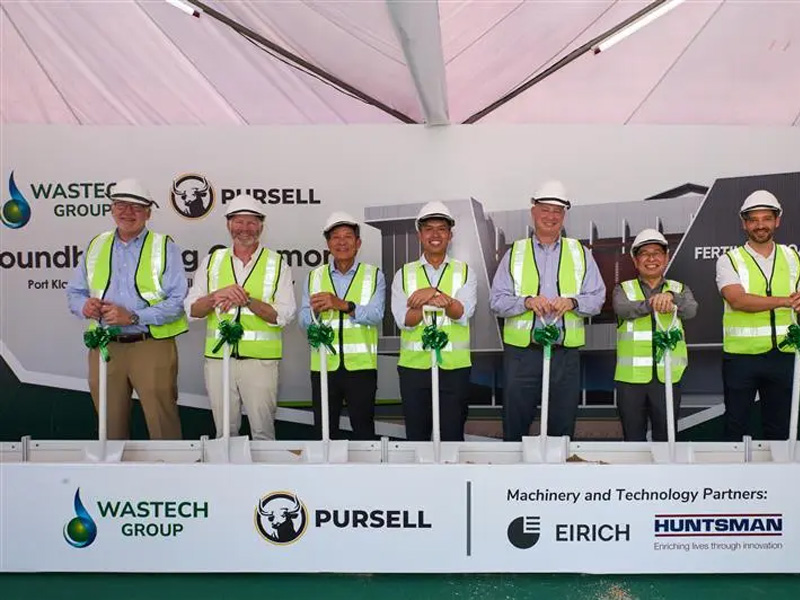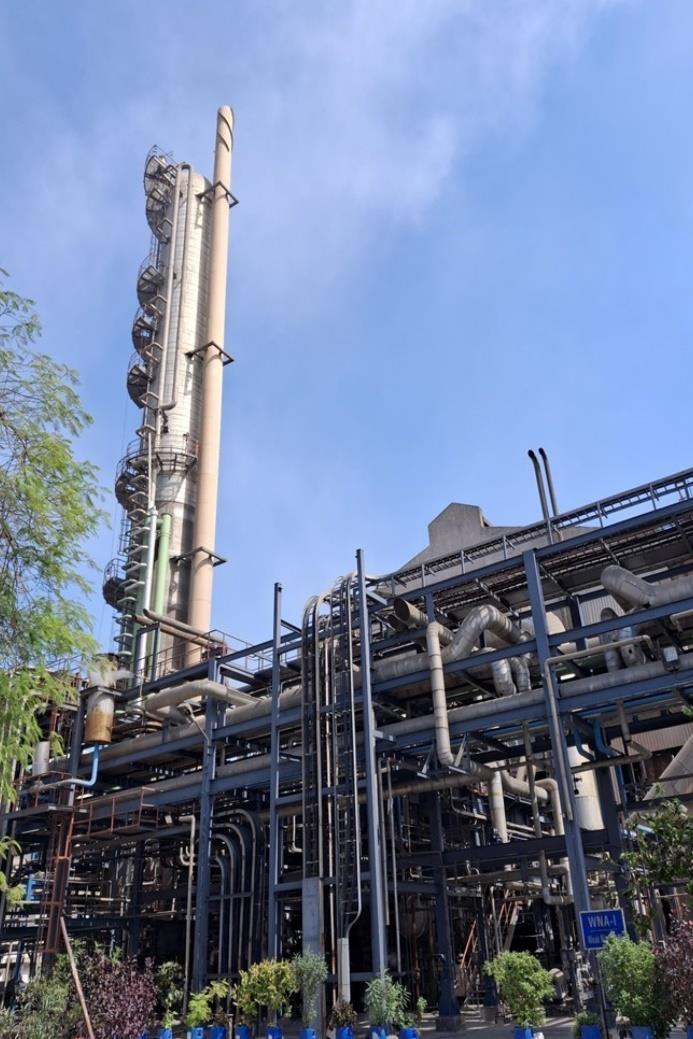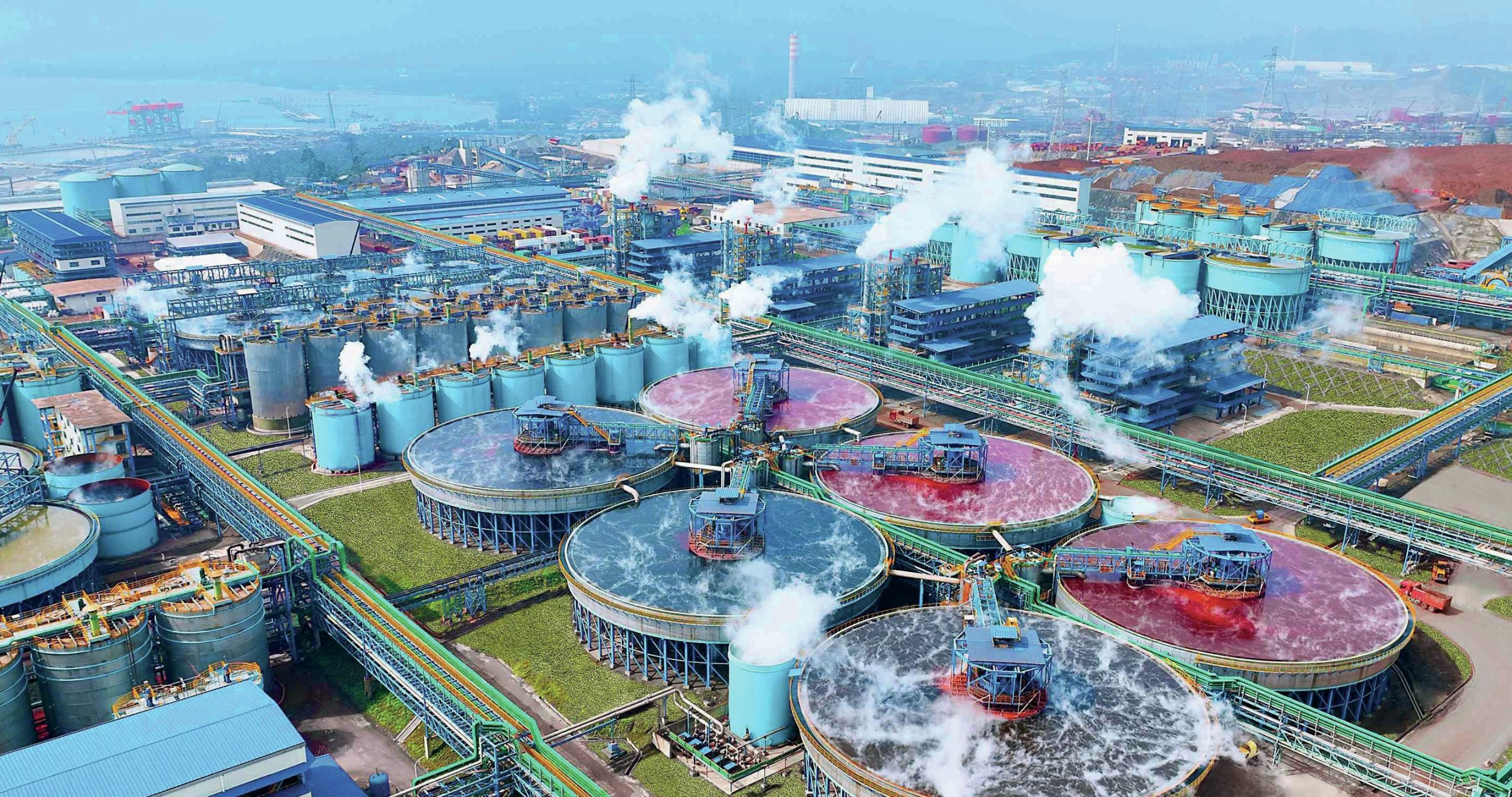Fertilizer International 496 May-Jun 2020

31 May 2020
COVID-19 NEWS ROUND-UP

TRINIDAD
Nutrien closes ammonia plant for three months
Nutrien has temporarily shut down one of the four ammonia plants at its Trinidad production site.
“We expect the shutdown to last for a minimum of three months,” Nutrien said in a statement on 5th May, calling this a “difficult decision”. The company said it will continue to monitor market conditions to assess if any further production changes are necessary.
The closed plant has the capacity to produce 600,000 tonnes of ammonia annually. Nutrien confirmed that its three other ammonia plants and one urea plant in Trinidad would continue to operate as normal.
AUSTRALIA
Incitec Pivot abandons fertilizer sell-off
Incitec Pivot Limited (IPL) has decided to retain its fertilizer business following the conclusion of a strategic review.
Incitec Pivot announced the possible sale of its fertilizer production arm in September 2019 as part of strategic review of operations. The three options on the table were sale, demerger, or retain and invest.
However, after exploring the level of market interest, discussions with potential buyers have now ended, IPL confirmed on 21st April. Canadian fertilizer giant Nutrien – which owns a major farm retail business in Australia – reportedly pulled out of talks in February due to the emerging coronavirus threat.
A careful assessment of a potential demerger was also undertaken by IPL. But the company has now concluded that – given the extraordinary market uncertainty and travel restrictions caused by the Covid-19 pandemic – retaining Incitec Pivot Fertilisers was the right decision for IPL and its shareholders. Its fertilizer production business will now “focus on [being] an industry leader in the supply of fertilisers and services to Australian agriculture”, IPL said in a statement.
“The impact of the Covid-19 pandemic on market conditions has created extraordinary uncertainty,” said Jeanne Johns, IPL’s managing director and CEO. “The IPL Board has concluded that it is in our shareholders’ best interests that we continue to… run the industry leading businesses of Incitec Pivot Fertilisers and Dyno Nobel to deliver quality products and services for our customers in the agricultural and resources sectors.”
IPL reported that Covid-19 has not significantly affected its operations to date.
“During this period of disruption, we have worked closely with our customers, farmers, and federal and state governments to ensure the fertiliser supply chain remains robust, to provide essential nutrients for farmers to provide food for Australians,” commented Ms Johns. “Recent widespread rainfall across eastern Australia has created significant demand by farmers for fertiliser. The business is also well-placed to benefit from any future improvement in global fertiliser prices.”
INDIA
CIL restarts Visakhapatnam fertilizer plant
Indian fertilizer importer and manufacturer Coromandel International Limited (CIL) has partly restarted fertilizer production at its Visakhapatnam plant, according to a stock exchange filing. Its Kakinada production plant is also said to be still running.
The 25th April announcement follows cuts in output at CIL’s production sites at the end of March, made in response to government-imposed Covid-19 lockdown measures.
CIL is one of India’s largest domestic phosphate fertilizer producers, with a total annual capacity of 3.5 million t/a for DAP, SSP and NPKs. It operates major four major phosphate plants. Two of these are located in Andhra Pradhesh, at Kakinada and Visakhapatnam, together with two more plants at Ennore and Ranipet in Tamil Nadu.
The company produced 2.9 million tonnes of phosphate based fertilizers in 2018/19, according to Argus Media, together with an additional 561,000 tonnes of SSP from eight production locations.
CIL began to reduce operational staff numbers on 23rd March, immediately prior to the Indian government’s initial 15-day coronavirus lockdown. CIL followed this by suspending operations at Ennore and Visakhapatnam on 26th March. The Indian government’s lockdown measures were subsequently extended until 3rd May.
CIL’s shutdown was just one of many Indian fertilizer manufacturing closures announced at the end of March. Rival producers IFFCO, Deepak, PPL, Fact, GSFC, RCF, Smartchem and Greenstar also announced plant closures and/or reductions in operating rates.
CIL’s resumption of production follows a pronounced uptick in fertilizer raw material purchases, reports Argus Media. The company is still receiving contracted ammonia shipments, for example, with 5,000 tonnes scheduled for early-May delivery.
CIL also imports phosphoric acid for production, receiving 983,000 tonnes of phosphoric acid last year, according to Argus, with around 454,000 tonnes of this volume being OCP-supplied.
OCP has reported, however, that April-loading of phosphoric acid shipments to India had largely ceased, following the drop in phosphates production on the subcontinent, with the company granulating more DAP for the Indian market instead. CIL bought 50,000 tonnes of Moroccan DAP for May arrival, for example, to offset its lower domestic output.
NFL maintains fertilizer supply during lockdown
Major public sector producer National Fertilizers Limited (NFL) has confirmed that its urea plants remain fully operational and producing at more than 11,000 t/d.
These include NFL’s Nangal, Bathinda and Panipat plants, together with its two plants at Vijaipur. The company says it has been working to ensure an adequate supply of fertilizers to farmers during the country’s extended lockdown.
This news follows the Indian government’s announcement that key industries such as agriculture, fertilizers and the movement of goods will be allowed to resume fully from 20th April, one aim being to allow harvesting operations by lifting restrictions on farming, plantations and fertilizer production units. As a result of India’s lockdown measures, labour and logistical shortages over the last two months have severely delayed crucial rabi season harvesting, which normally ends in March. The kharif sowing period, which generally begins in April, has also been affected.
The commissioning of the new Ramagundam Fertilizers and Chemicals Ltd (RFCL) plant has also been interrupted by the Covid19 outbreak. The commissioning of the new 3,850 t/d ammonia-urea complex was due to begin in April. But employees have now been furloughed until the end of India’s lockdown.
RFCL is a multi-partner joint venture between NFL, Engineers India limited, the Fertilizer Corporation of India, the Telangana government, GAIL India Limited and the HTAS consortium. Prime Minister Narendra Modi marked the start of construction by laying a foundation stone for the revived plant in August 2016.
SWITZERLAND
EuroChem issues Covid-19 update
EuroChem says it has implemented a range of measures to reduce the adverse effects of the Covid-19 pandemic on its staff and the business.
In a 4th May statement, the Zug-headquartered fertilizer producer confirmed it had taken preventative risk management measures across all functions, including production, logistics, supply chain, markets, staff, IT and finance.
“All EuroChem plants continue to operate as normal and customers have experienced no significant disruptions with product deliveries. All relevant sanitation, social distancing and personal hygiene measures are in place and functioning efficiently at all locations,” the statement said.
More than 6,000 EuroChem office staff worldwide are currently working remotely.
Announcing its results for the first-quarter of 2020, EuroChem revealed it had sold 6.4 million tonnes of fertilizers, mining and other products during this period, a 10 percent year-on-year increase.
“This strong set of results is built upon the determination, hard work and coordination of everyone across the company to ensure our products reach our customers, and farmers can grow the food the world needs,” said Petter Ostbo, EuroChem’s CEO. “In this challenging environment, our priority has been the health, safety and wellbeing of our colleagues and their families, and our business partners, while at the same time maintaining business continuity.”
EuroChem says it is pressing ahead with the development of its two potash projects in Russia. The company’s Usolskiy plant in the Perm Region produced 506,000 tonnes of MOP (muriate of potash, KCl,) during the first three months of this year. Progress continues apace at its sister VolgaKaliy potash project in Russia’s Volgograd Region too, with drilling having now reached the mine’s potash layer.
DUBAI
GPCA calls for uninterrupted supply of raw materials
The Gulf Petrochemicals and Chemicals Association (GPCA) wants to see the removal of restrictions affecting the supply of raw materials used to manufacture essential medical and hygiene equipment, saying these are absolutely crucial to fighting the Covid-19 pandemic.
The GPCA specifically called for the removal of high tariffs and other trade barriers currently in place in a statement on 1st April. The association is the official voice of the chemical industry in the Arabian Gulf, including fertilizer producers.
Its plea came after a pledge by world leaders during the G20’s ‘virtual’ summit in March “to ensure the flow of vital medical supplies, critical agricultural products” and “resolve disruptions to the global supply chains”.
The GPCA wants to see national governments and international legislators work more closely together to ensure the uninterrupted supply of essential chemical and petrochemical raw materials. In particular, it wants regulators to speed up the full implementation of the WTO’s trade facilitation agreement (TFA). This is designed to simplify, modernise and harmonise import-export procedures and processes.
“Businesses are continuing to manufacture, in difficult circumstances, the various tools, safety equipment and personal protective equipment such as sterile gloves, masks, hand sanitizers and protective clothing urgently needed to protect the health and safety of people and medical personnel, “ said Dr Abdulwahab Al-Sadoun, the GPCA’s secretary general. “In the current crisis, the role of the chemical industry in ensuring the steady and reliable supply of vital raw materials and products has never been more pronounced.”
GPCA has particular concerns over current Indian anti-dumping measures on imports from Saudi Arabia, Kuwait, Oman, UAE and Singapore. These are jeopardising $543 million of mono ethylene glycol (MEG) exports from the Gulf region into India, in its view.






